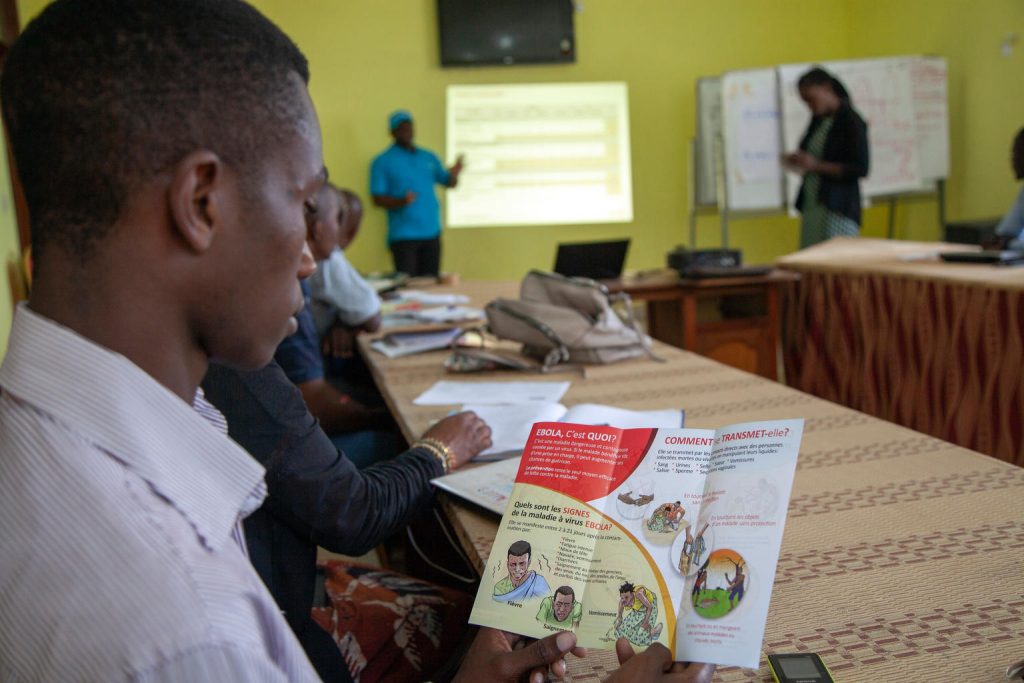Risk Communication and Community Engagement (RCCE) is an essential part of any disease outbreak response. Risk communication in the context of an Ebola outbreak refers to real time exchange of information, opinion and advice between frontline responders and people who are faced with the threat of Ebola to their survival, health, economic or social wellbeing. Community engagement refers to mutual partnership between Ebola response teams and individuals or communities in affected areas, whereby community stakeholders have ownership in controlling the spread of the outbreak.
This document was developed jointly by the Risk Communication and Community Engagement (RCCE) incident management team for the Ebola Virus Disease outbreak response in the Democratic Republic of the Congo in September 2018 by World Health Organization, UNICEF and International Federation of Red Cross and Red Crescent Societies, with inputs from GOARN Research (Social Science), US Centres for Disease Control, Social Science Humanitarian Action Platform, and Anthrologica.
It is intended to be used to guide RCCE work which is central to stopping the outbreak and preventing its further amplification. Unlike other areas of response, RCCE draws heavily on volunteers, frontline personnel and on people without prior training in this area. As such, the document provides basic background information, scopes the socio-economic and cultural aspects (that are known at the time of publication), and provides the latest evidence-based advice and approaches.



